
Somebody has thrown their ‘Chronicle of the 20th Century‘ into the skip at the top of East St Helen Street, but today’s post looks back at the 20th Century. (Adverts taken from the Abingdon Herald from May 1978 with thanks. All Rights Reserved.)
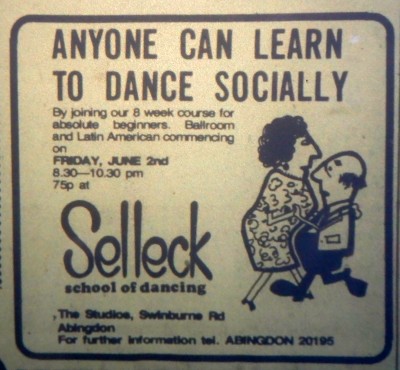
In 1968 the Abingdon Congregational Church came to share worship in the same building as Trinity Methodist Church. They maintained their separate organisations for the next ten years then in 1978 a sharing agreements were signed and the two congregations united at Trinity Church. So this Sunday (on Trinity Sunday), Trinity are celebrating 40 years together.

I went to look in the library to see if this got mentioned in the May 1978 Abingdon Heralds (on microfilm). I could not find anything about that, but there was a story about the Abingdon Congregational Church building (now the Ask Restaurant). The headline was ‘Rival Plans for Old Church – Skateboards or Art and Crafts?‘ The VWHDC (Vale White Horse District Council) were to decide between competing schemes for the old church, either to become a centre for traditional crafts, or a specialist skateboard centre. I don’t think either happened.

Also of interest was the headline ‘One Way to Car Chaos‘. East and West St Helen Street, and St Helen’s Wharf bridge had just become One Way. This scheme had been months in the planning, but motorists, who lived in the new housing estates in South Abingdon, did not seem to know, and lots of them tried to go down East St Helen Street where a temporary barrier stopped them going home that way. The editorial said that it was like a return to the bad old days of Abingdon traffic chaos.
Category Archives: heritage
Official Guide
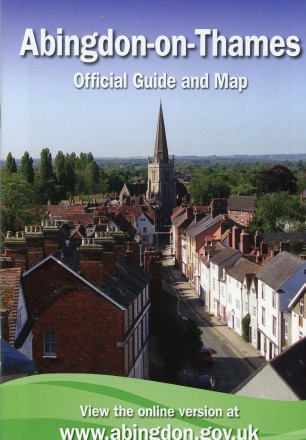
The brand new 2018 edition of the Abingdon-on-Thames Official Guide and Map plopped through the door today. It is full of useful information.
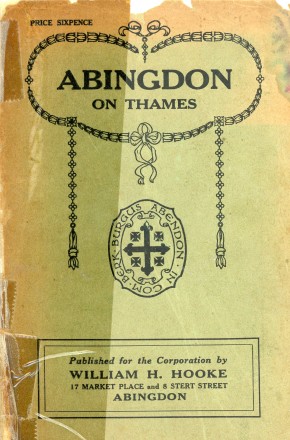
On Saturday I picked up a 1924 town guide from Oxfam. It contained a history of the town, with lots of black and white views of the town, most of which are still easy to recognise. The first few and last few pages were dedicated to adverts.
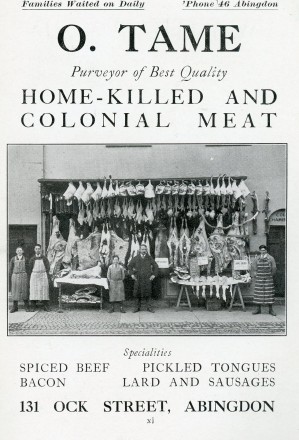
I would not recognise 131 Ock Street from the picture,with the open display of meat. (© William H Hooke. All Rights Reserved).
Dragons Teeth by the River Ock
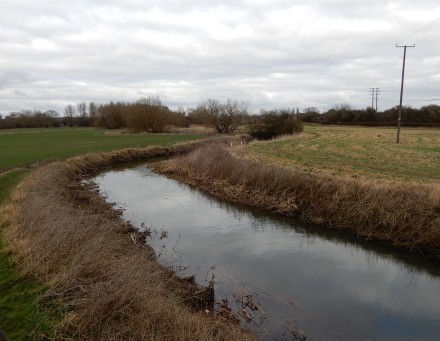
Back in 1940, after the fall of France, the UK was at risk of a German invasion. The River Ock seems to have been consolidated as a defense line to stop the ‘Blitzkrieg’. There is a pillbox one side of the river, over by the old path of the canal.
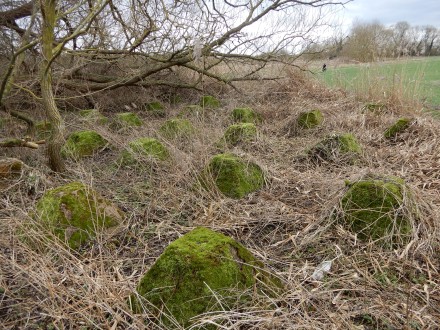
On the other side are a set of concrete dragons teeth – positioned to stop Hitler’s tanks if they try to dodge the River and the other water-filled channels. At this time of year, the vegetation has died back showing the green dragons teeth.
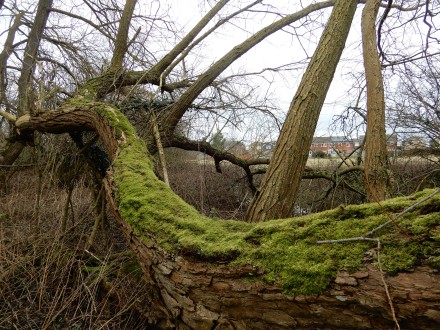
Behind the dragons teeth there is an area where willows lay. They too are covered in green at this time of year.
High Treason
What might make a good film is this real life event from 1832 that was tried at Abingdon …
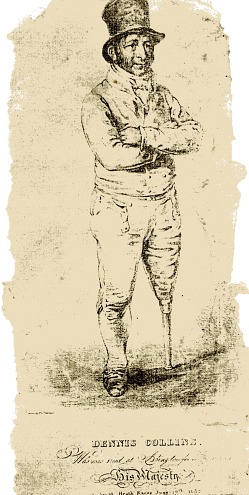
Dennis Collins was convicted of High Treason, at Abingdon County Hall in 1832. Collins threw two stones at the King at Ascot Races. The first stone missed, and the second grazed King William IV, after hitting his hat. The King retreated to safety for a short while before re-appearing to show all was well to the crowd at Ascot .
In the mean time Dennis Collins was apprehended and beaten up and taken to Reading Gaol, and then later to Abingdon Gaol for the trial.
The jury at the County Court at Abingdon decided that he was guilty but at the same time petitioned the King for clemency.
Collins had served in the Royal Navy. He lost his leg on active service and was pensioned off – valiantly. He exchanged his pension to become an in-pensioner at a home for ex servicemen. He did have a bit of a temper, and one day lost his temper over a small matter. The home was swept too often and that disturbed his peace, and he asked that it be swept only once a day. This led to an altercation, and Collins was thrown out and then lost his pension.
For six months he lived as best he could with little money. He was more miserable than he had ever been in his life, and wrote to the King asking that his pension be re-instated. The letter was sent to the admiralty to decide and they decided he could NOT have his pension back.
It was for that reason he threw the two stones at Ascot Race Course. He had done it as a protest to get his pension back, not to hurt the King. He was very sorry afterwards that one stone had hit the King.
A print of Collins exists and shows him with a wooden leg. A kind lady exchanged his old wooden leg and ex-sailor’s garb, for a new leg and more respectable attire.
The King was merciful, and the initial mandatory sentence for such treason (hanging and quartering) was changed to transportation for life, and so Collins was sent to Van Diemen’s Land at 70 years of age. A short residence in that colony ended his days when he died in the spring of the year 1834.
